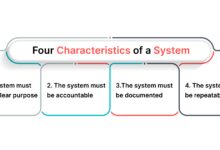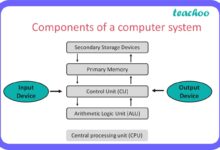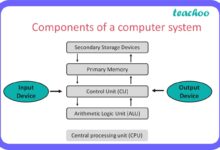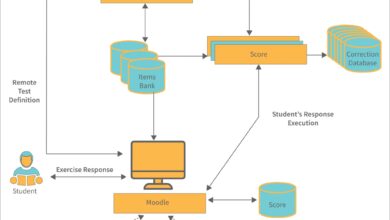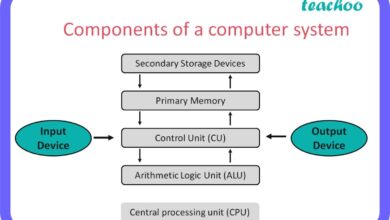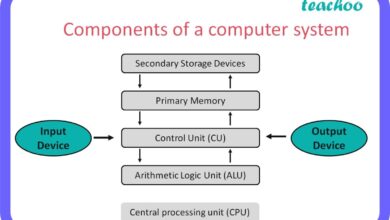CRM Software Cost: 7 Shocking Truths You Can’t Ignore in 2024
Thinking about CRM software cost? You’re not alone. Businesses everywhere are trying to balance powerful tools with tight budgets. Let’s break down what you’ll really pay—and how to save big.
Understanding CRM Software Cost: What You’re Really Paying For

When you dive into the world of CRM software cost, it’s easy to get overwhelmed. Prices vary wildly—from free plans to $300 per user per month. But what drives these numbers? It’s not just about features; it’s about scalability, integration, support, and long-term value. Understanding the full picture helps you avoid costly surprises down the road.
Base Pricing Models Explained
Most CRM platforms use one of three pricing models: per-user, per-feature, or flat-rate. The most common is per-user, per-month, where you pay a set fee for each employee using the system. For example, HubSpot CRM offers a free tier but charges $45/user/month for its Professional tier. Salesforce starts at $25/user/month but quickly scales up to $300 for Enterprise editions.
- Per-user pricing: Scales with team size; ideal for growing teams.
- Flat-rate pricing: Fixed cost regardless of users; great for small teams.
- Tiered pricing: Bundled features at increasing price points (e.g., Starter, Professional, Enterprise).
Some CRMs like Zoho offer a hybrid model—free for up to 3 users, then tiered pricing kicks in. This flexibility makes them popular among startups.
Hidden Costs Behind the Sticker Price
The advertised CRM software cost is rarely the full story. Hidden fees can include onboarding, training, data migration, API usage, and premium support. For instance, Salesforce may quote $25/user/month, but add implementation consultants at $150/hour, and costs skyrocket.
- Implementation fees: Can range from $500 to $50,000+ depending on complexity.
- Customization: Tailoring workflows or dashboards often requires developer time.
- Integration costs: Connecting your CRM to email, marketing tools, or ERP systems may require third-party middleware like Zapier or MuleSoft.
“The true CRM software cost isn’t just the monthly subscription—it’s the total cost of ownership over 3–5 years.” — Gartner Research, 2023
CRM Software Cost by Deployment Type: Cloud vs. On-Premise
One of the biggest factors influencing CRM software cost is whether you choose cloud-based (SaaS) or on-premise deployment. Each has distinct financial implications, especially over time.
Cloud-Based CRM: The Pay-as-You-Go Advantage
Cloud CRM solutions like HubSpot, Salesforce, and Zoho CRM dominate the market because they reduce upfront costs. You pay monthly or annually, with hosting, updates, and security managed by the vendor.
- Lower initial investment: No need for servers or IT infrastructure.
- Scalability: Easily add or remove users as your team grows.
- Automatic updates: No downtime or manual patching required.
However, long-term costs can accumulate. A $50/user/month plan for 10 users becomes $6,000/year—$30,000 over five years. That’s more than many on-premise licenses.
On-Premise CRM: High Upfront, Lower Long-Term?
On-premise CRM systems like Microsoft Dynamics 365 (when self-hosted) or older SAP CRM versions require significant upfront investment. You buy licenses, servers, and hire IT staff to maintain the system.
- One-time license fees: Can range from $1,000 to $5,000 per user.
- Hardware costs: Servers, backups, and networking equipment add thousands.
- Maintenance: Annual support fees (typically 15–20% of license cost) cover updates and patches.
While cloud CRM has overtaken on-premise in popularity, some industries (e.g., finance, government) still prefer on-premise for data control and compliance. But for most SMBs, the CRM software cost of on-premise is prohibitive.
Top CRM Platforms and Their Real-World Pricing
To understand CRM software cost, let’s compare the most popular platforms. We’ll look at entry-level pricing, mid-tier options, and enterprise plans—including what you get and what you might still pay extra for.
Salesforce: The Enterprise Leader
Salesforce is the gold standard for CRM, but it’s also one of the most expensive. Its CRM software cost starts at $25/user/month for Sales Cloud Essentials, but real functionality begins at $75/user/month (Professional) and goes up to $300/user/month (Unlimited).
- Essentials ($25): Basic contact and deal tracking; limited automation.
- Professional ($75): Full sales automation, email integration, custom reports.
- Enterprise ($150): Advanced customization, API access, role-based security.
- Unlimited ($300): 24/7 support, sandbox environments, premium features.
But wait—Salesforce also charges extra for Service Cloud, Marketing Cloud, and Pardot. Add-ons can double your bill. Implementation through partners like Accenture or Deloitte can cost $50,000+.
HubSpot CRM: Free to Start, But Grows Fast
HubSpot is famous for its free CRM, which includes contact management, email tracking, and deal pipelines. But as your needs grow, so does the CRM software cost.
- Free Plan: Unlimited users, basic CRM features.
- Starter ($20/month): Marketing, sales, and service hubs with limited automation.
- Professional ($800/month): Advanced workflows, reporting, and integrations.
- Enterprise ($3,200/month): Predictive lead scoring, custom objects, SLA management.
Unlike per-user models, HubSpot’s paid tiers are flat-rate per hub. This can be cost-effective for large teams but expensive for small ones needing only a few users.
Zoho CRM: Budget-Friendly with Depth
Zoho CRM offers one of the most competitive CRM software cost structures. It’s ideal for small to mid-sized businesses wanting power without the price tag.
- Free Plan: Up to 3 users, basic CRM features.
- Standard ($14/user/month): Email integration, task automation, webforms.
- Professional ($23/user/month): Custom modules, advanced analytics, workflow rules.
- Enterprise ($40/user/month): Territory management, multi-currency, audit trails.
Zoho also offers Zia AI and Flow automation as add-ons, costing extra. But overall, it’s one of the most transparent and scalable options.
Factors That Skyrocket CRM Software Cost
Even if you pick an affordable CRM, certain factors can inflate your total CRM software cost. Being aware of these can help you plan better and negotiate smarter.
User Count and Team Size
This is the most obvious driver. Most SaaS CRMs charge per user, so doubling your team doubles your bill. But not all users need full access. Consider license tiers:
- Full users: Sales reps who need full CRM access.
- Light users: Managers or support staff who only view data.
- Read-only users: Executives who need dashboards but don’t edit records.
Salesforce offers “Community” licenses for $10/user/month—perfect for partners or customers. Zoho allows free “portal users” for external access.
Customization and Integration Needs
Off-the-shelf CRM features rarely fit every business perfectly. Custom fields, workflows, and dashboards require development time. If your CRM doesn’t natively integrate with your ERP, email, or e-commerce platform, you’ll need middleware.
- Zapier: $20–$100/month for basic integrations.
- MuleSoft (Salesforce): $500+/month for enterprise-grade API management.
- Custom API development: $5,000–$50,000 depending on complexity.
Always ask vendors: “What integrations are included?” and “Do you offer native connectors for [your key tools]?”
Support and Training Expenses
Free support is usually limited to community forums. For phone or live chat, you’ll pay more. Salesforce’s Unlimited edition includes 24/7 support, but Essentials does not. HubSpot’s free plan has no phone support.
- Basic support: Email-only, 48-hour response time.
- Premium support: Phone, chat, SLAs—adds 15–30% to annual cost.
- Training: Onboarding sessions can cost $1,000–$10,000.
Investing in training reduces long-term costs by improving adoption and reducing errors.
How to Reduce CRM Software Cost Without Sacrificing Quality
You don’t need to overspend to get a powerful CRM. With smart planning, you can cut CRM software cost by 30–50% while still getting the features you need.
Negotiate Your Contract
Most vendors expect negotiation. Don’t accept the listed price. Ask for:
- Annual billing discounts (often 10–20% off monthly).
- Free user upgrades (e.g., add 2 extra users at no cost).
- Waived implementation fees.
- Free training or onboarding credits.
For enterprise deals, involve a procurement specialist. Companies like Salesforce often offer multi-year contracts with significant savings.
Start Small and Scale Gradually
Don’t buy the Enterprise plan on day one. Start with the lowest tier that meets your core needs. Most CRMs let you upgrade anytime.
- Begin with contact and deal management.
- Add marketing automation when you’re ready.
- Enable advanced analytics once you have enough data.
Zoho and HubSpot make this easy with seamless tier upgrades. Avoid overbuying features you won’t use for months.
Leverage Free and Open-Source Alternatives
If budget is tight, consider free or open-source CRM options. While they require more setup, they can drastically reduce CRM software cost.
- HubSpot Free CRM: Full-featured for small teams.
- SuiteCRM: Open-source fork of SugarCRM; zero licensing cost.
- Dolibarr: Lightweight CRM + ERP for small businesses.
Open-source CRMs require self-hosting and technical know-how, but eliminate recurring fees. Ideal for tech-savvy teams.
The True ROI of CRM: Is the Cost Worth It?
While CRM software cost is important, the real question is: What’s the return on investment? A well-implemented CRM can boost sales, improve customer retention, and streamline operations.
Measuring CRM ROI: Key Metrics
To justify the CRM software cost, track these KPIs before and after implementation:
- Sales cycle length: Has it shortened?
- Conversion rates: Are more leads turning into customers?
- Customer retention: Are repeat purchases increasing?
- Team productivity: Are reps spending less time on admin?
According to Nucleus Research, the average ROI of CRM is $8.71 for every $1 spent. That’s a 771% return—making CRM one of the most valuable business tools.
Case Study: How a Mid-Sized Company Saved $42K
A B2B software company with 50 employees was using Salesforce at $150/user/month. Total cost: $90,000/year. After audit, they found:
- Only 30 users needed full access.
- 20 could use light licenses ($10/user/month).
- They were paying for unused Marketing Cloud features.
They migrated to Zoho CRM Professional at $23/user/month for 30 users + 20 free portal users. New cost: $8,280/year. Annual savings: $81,720. With implementation and training, payback was under 6 months.
When NOT to Invest in CRM
CRM isn’t always the answer. If your sales process is simple, your team is small, or your data is disorganized, a CRM might add more complexity than value.
- Too early stage: Founders managing 10 leads/month don’t need Salesforce.
- Poor data hygiene: Garbage in, garbage out. Clean data first.
- Low team adoption: If reps won’t use it, it’s a waste.
In such cases, start with spreadsheets or lightweight tools like Notion or Airtable.
Future Trends Impacting CRM Software Cost
The CRM landscape is evolving fast. New technologies and business models are reshaping how we think about CRM software cost.
AI-Powered Automation: Cost Saver or Cost Driver?
AI is becoming standard in CRM. Features like predictive lead scoring, chatbots, and automated email responses save time—but often come at a premium.
- Salesforce Einstein: $50+/user/month add-on.
- HubSpot AI Tools: Included in Enterprise, extra for lower tiers.
- Zoho Zia: $10/user/month.
While AI increases upfront CRM software cost, it can reduce labor costs long-term. One study found AI in CRM improves sales productivity by 14%.
Vertical-Specific CRMs: Niche but Cost-Effective
Generic CRMs try to do everything. Vertical-specific CRMs (e.g., for real estate, healthcare, legal) come pre-built for your industry, reducing customization costs.
- Real Estate: Follow Up Boss (~$79/month, all-in-one).
- Healthcare: NextGen CRM (built for HIPAA compliance).
- Legal: Clio Manage (client intake, billing, CRM).
These often cost less than customizing a generic CRM and improve adoption due to industry-specific workflows.
Subscription Fatigue and the Rise of Flat-Rate Pricing
Businesses are tired of per-user pricing. In response, some vendors are shifting to flat-rate models. For example, Pipedrive recently introduced a $99/month plan for unlimited users.
- Reduces cost for large teams.
- Simplifies budgeting.
- Encourages broader adoption.
This trend could disrupt traditional CRM software cost structures, especially for SMBs.
What is the average CRM software cost for small businesses?
The average CRM software cost for small businesses ranges from $12 to $50 per user per month. Many platforms offer free tiers (e.g., HubSpot, Zoho) for up to 3–5 users. For a team of 10, expect to pay $1,500–$6,000 annually for a mid-tier CRM like Zoho Professional or HubSpot Starter.
Are there any truly free CRM software options?
Yes, several CRMs offer robust free plans. HubSpot CRM is the most popular, offering contact management, email tracking, and deal pipelines at no cost. Zoho CRM provides free access for up to 3 users. These are ideal for startups and solopreneurs, though advanced features require upgrading.
How much does Salesforce really cost?
Salesforce starts at $25/user/month for Sales Cloud Essentials, but meaningful functionality begins at $75/user/month (Professional). With add-ons like Service Cloud, Marketing Cloud, and Pardot, costs can exceed $300/user/month. Implementation and consulting fees can add $10,000–$100,000, making total CRM software cost substantial.
Can I reduce CRM costs with open-source software?
Yes. Open-source CRMs like SuiteCRM and Dolibarr have no licensing fees. However, they require self-hosting, maintenance, and technical expertise. While this reduces recurring costs, it may increase IT labor. Best for organizations with in-house developers.
What is the cheapest CRM with good customer support?
Zoho CRM offers excellent value, with plans starting at $14/user/month and including email support. For phone support, Freshsales (now Freshworks CRM) starts at $15/user/month and includes phone and chat support even in lower tiers. Both are more affordable than Salesforce or HubSpot for comparable features.
Understanding CRM software cost goes far beyond the monthly subscription. It includes implementation, training, integrations, and long-term scalability. While prices range from free to thousands per month, the key is aligning your CRM choice with your business size, goals, and budget. By evaluating total cost of ownership, negotiating wisely, and starting small, you can maximize ROI without overspending. The best CRM isn’t the cheapest or most expensive—it’s the one that delivers real value for your unique needs.
Recommended for you 👇
Further Reading:
